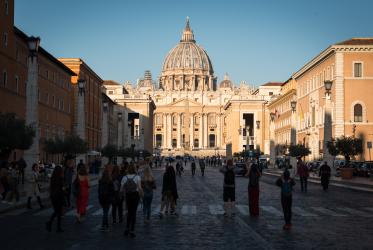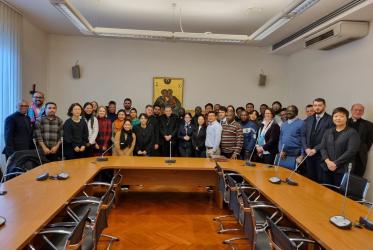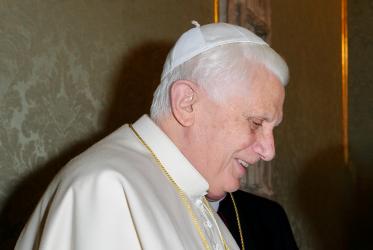Displaying 41 - 60 of 619
Bossey students embark on study visit to Rome
23 January 2023
L’héritage œcuménique du pape Benoît XVI
01 January 2023
Le pape émérite Benoît XVI laisse un héritage de dialogue œcuménique
31 December 2022
The Ecumenical Legacy of Pope Benedict XVI
31 December 2022
Pope Emeritus Benedict XVI leaves a legacy of ecumenical dialogue
31 December 2022
Towards a Global Vision of the Church Volume I
Explorations on Global Christianity and Ecclesiology, Faith and Order Paper 234
14 November 2022
Uppsala 1968: c’était le temps des changements
19 September 2022











